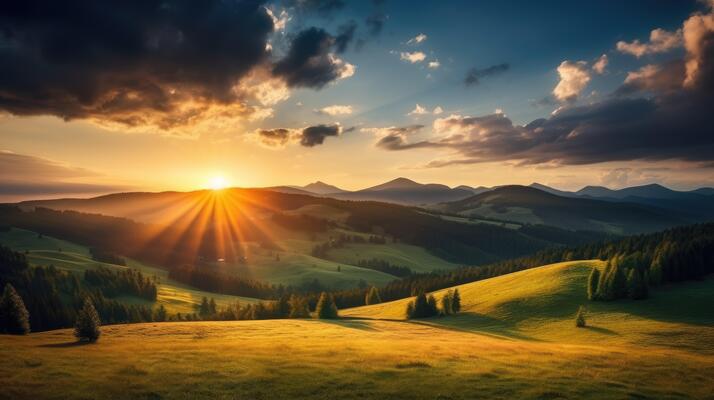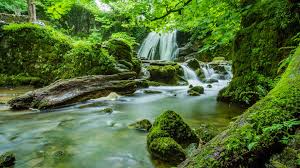

Nature is a complex and breathtakingly beautiful system that stretches from the depths of the ocean to the peaks of the highest mountains, covering every landscape and climate zone on Earth. Its diversity is astounding, encompassing ecosystems that range from tropical rainforests and deserts to wetlands, grasslands, and arctic tundras. Each of these habitats is home to unique species of plants, animals, and microorganisms that contribute to a delicate balance, where every living organism, no matter how small, has a role to play. These connections form an intricate web of life, where the existence and health of one species often depend on many others.
The forests, which are often called the "lungs of the Earth," are essential for regulating the planet's climate and producing oxygen, the element that sustains most forms of life. Rainforests alone are home to more than half of the world's plant and animal species, while vast savannas and grasslands support large mammals like elephants, lions, and zebras. Oceans, which cover more than 70% of the Earth's surface, are another critical part of nature. They provide food, regulate climate by absorbing carbon dioxide, and help in generating the oxygen we breathe. Coral reefs, often referred to as "rainforests of the sea," are some of the most biologically diverse and productive ecosystems, providing shelter to countless marine species and protecting coastlines from erosion.
Nature offers not only physical resources but also immeasurable beauty and inspiration. The changing seasons bring forth a constant renewal; spring bursts forth with fresh leaves and blossoms, summer offers lush greenery and warmth, autumn brings a rich palette of colors, and winter covers landscapes in stillness and frost. These cycles symbolize the resilience of life and the perpetual rhythm of renewal, reminding us that change is a fundamental part of nature.
The natural world also profoundly impacts human well-being. It provides essential resources, from the air we breathe and the water we drink to the soil that grows our food. Time spent in nature has been proven to improve mental health, reduce stress, and boost physical health. Forests, mountains, rivers, and beaches offer spaces where people can reconnect with the world outside human constructs, rediscovering a sense of wonder and peace.
Yet, nature faces significant challenges due to human activities, such as deforestation, pollution, and climate change, which threaten ecosystems and biodiversity. The urgency to protect and restore natural spaces is essential for the planet's health and our own. Nature conservation efforts, such as creating protected areas, replanting forests, and restoring habitats, are necessary steps to ensure that the intricate web of life continues to thrive.
In the end, nature is more than just the environment we live in; it is a vital part of who we are. Every mountain, river, forest, and creature forms an essential part of a beautiful, complex whole that reminds us of the interconnectedness of all life. In preserving nature, we are also protecting the very foundation that sustains us and enriching our lives in ways that go far beyond material needs.


Made in neocities.org by Gabriel de Souza